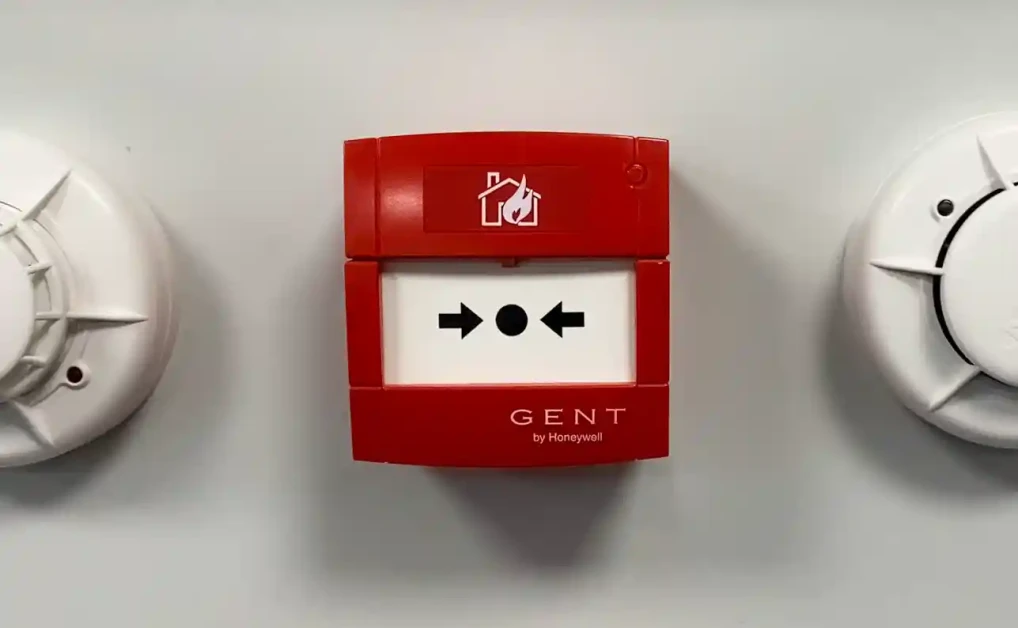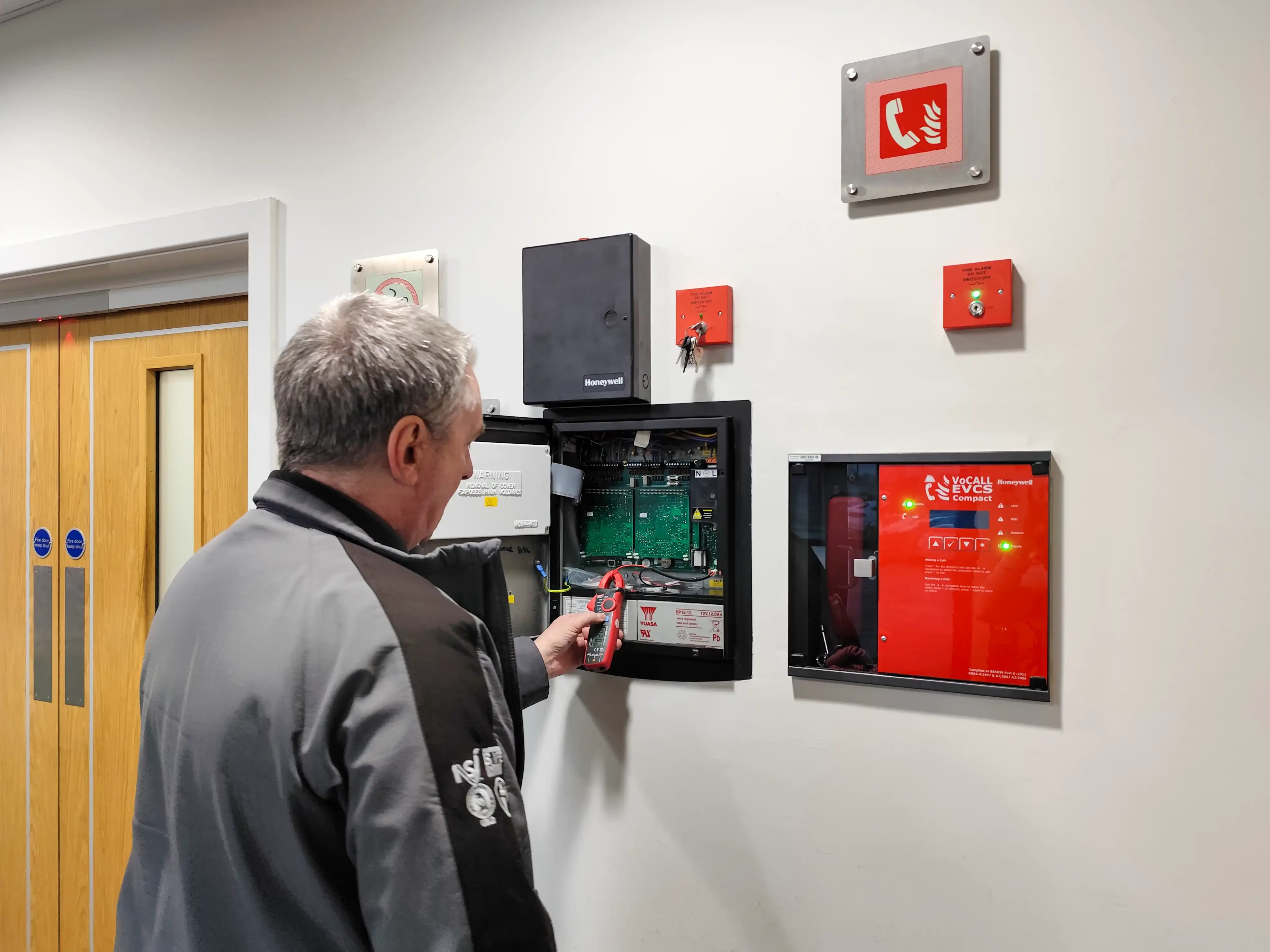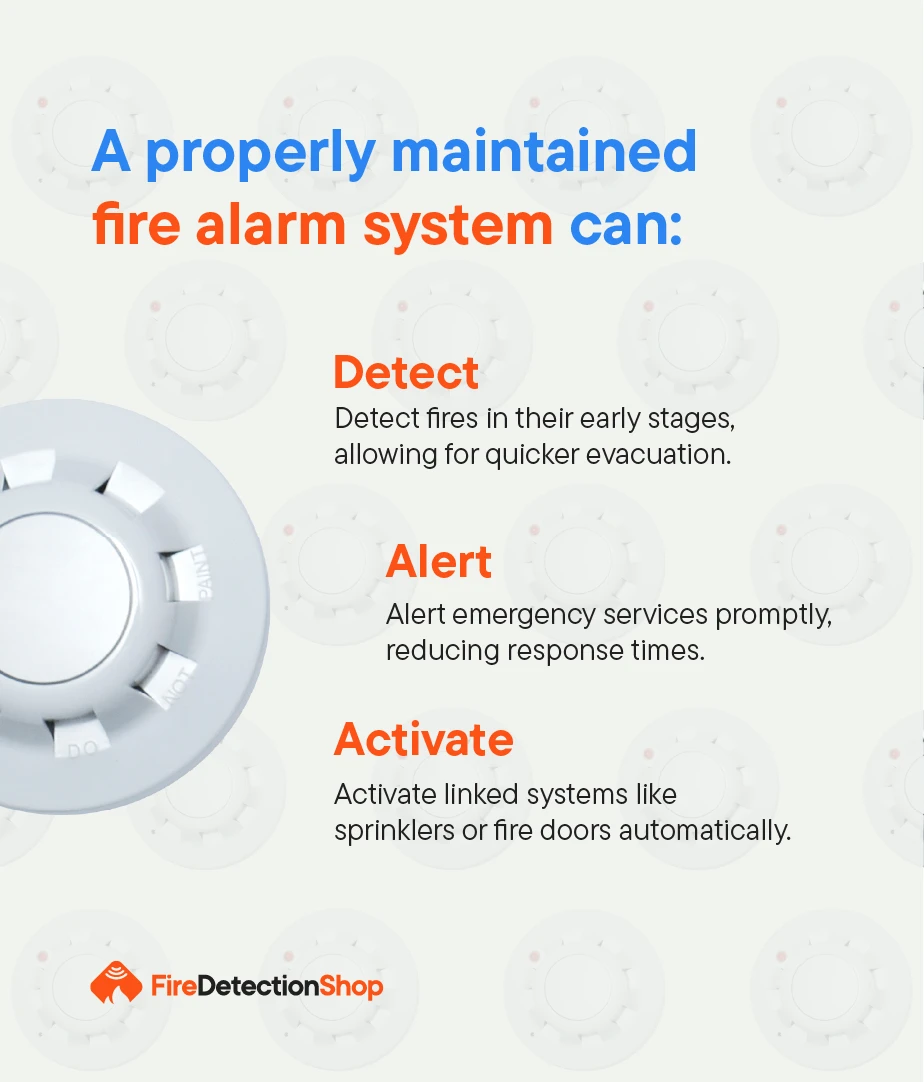
Need assistance?
Need Assistance? Call Us 0330 058 0630
Did You Know? We Sell Fire Alarm Systems as Complete Kits. Shop Now
19/02/2025 • by Alice P

Ensuring your commercial fire alarm system is in working condition is not just a legal requirement but a critical component of maintaining fire safety compliance within your establishment.
Regular fire alarm testing is crucial to safeguard your business premises and protect lives. With complex fire alarm regulations in place, business owners, fire safety managers, and facility managers must understand the intervals and procedures for conducting a test of the fire alarm system.
Regular commercial fire alarm testing is a crucial aspect of maintaining a safe and compliant commercial environment.
Fire safety compliance is a legal requirement for all commercial properties in the UK. Regular testing of fire alarm systems is a fundamental component of this compliance.
The Regulatory Reform (Fire Safety) Order 2005 mandates that all business premises must have an appropriate fire detection system. This legislation also requires that these systems are maintained in an efficient working order.
Failure to meet these regulations can result in severe penalties, including fines and potential imprisonment. More importantly, non-compliance puts lives at risk and can lead to significant property damage in the event of a fire.
Regular testing not only ensures legal compliance but also demonstrates a commitment to the safety of employees, customers, and visitors. It's an essential part of a comprehensive fire safety strategy.

Fire alarm regulations in the UK are comprehensive and can be complex. Understanding these regulations is crucial for business owners and safety managers to ensure full compliance.
The British Standard BS 5839-1:2017 provides guidelines for the design, installation, commissioning, and maintenance of fire detection and alarm systems. This standard recommends specific testing frequencies and procedures.
Key aspects of the regulations include:
The requirement for a 'responsible person' to oversee fire safety
The need for a fire risk assessment
Specific requirements for different types of premises
Guidelines for system design and installation
It's important to note that regulations can vary depending on the type and size of the premises. Consulting with a fire safety professional can help ensure your system meets all relevant standards.
Implementing a consistent and well-structured testing schedule is crucial for maintaining an efficient and reliable fire alarm system. This schedule serves as the backbone for ongoing system evaluations, ensuring each component operates optimally and is ready to perform in the event of an emergency. Regular testing helps identify potential issues before they become major problems, providing peace of mind that your safety measures are up to date.

Weekly and monthly fire alarm maintenance are crucial components of a comprehensive fire safety strategy. These regular checks help ensure the system remains operational between more thorough annual inspections.
Weekly tests typically involve:
Activating at least one call point or detector
Checking that the alarm sounds correctly
Verifying that any linked systems (like automatic doors) respond appropriately
Recording the test in a logbook
Monthly checks are more extensive and may include:
Inspecting batteries and power supplies
Testing emergency lighting
Checking fire doors and escape routes
It's important to rotate the call points or detectors tested each week to ensure all parts of the system are regularly checked. This approach helps identify any potential issues before they become critical problems.
Annual comprehensive fire alarm testing is a more in-depth examination of the entire fire alarm system. This thorough inspection is typically carried out by qualified professionals.
The annual fire alarm test should include:
A complete check of all components of the fire alarm system
Testing of all call points and detectors
Inspection of wiring and control panels
Verification of system configuration and programming
Assessment of battery condition and replacement if necessary
During this process, technicians will also review and update system documentation, including zone plans and operating instructions. They'll provide a detailed report of their findings and any recommendations for improvements or repairs.
Annual testing is crucial for identifying any degradation in system performance and ensuring all fire alarm components are functioning optimally. It's also an opportunity to assess whether the current system still meets the needs of the premises, especially if there have been any changes to the building layout or use.
Performing consistent fire alarm testing provides many benefits that are crucial for maintaining a safe and compliant business environment.
Regular testing of commercial fire alarms plays a crucial role in minimising fire risks in business environments. By ensuring early detection and swift response, these systems significantly reduce the potential for loss of life and property damage.
Properly maintained fire alarms can:
Detect fires in their early stages, allowing for quicker evacuation
Alert emergency services promptly, reducing response times
Activate linked systems like sprinklers or fire doors automatically
Regular testing helps identify any faults or issues that could compromise the fire alarm system's effectiveness. This proactive approach allows for timely repairs or replacements, ensuring the system remains reliable when it's needed most.
Moreover, consistent testing creates a culture of fire safety awareness among staff. It familiarises employees with the sound of the alarm and the appropriate evacuation procedures, potentially saving crucial seconds in an emergency.

Regular testing not only ensures compliance but also significantly improves the reliability and efficiency of your fire alarm system. This can lead to enhanced performance and potentially lower long-term costs.
Through consistent fire alarm system testing:
Minor issues can be identified and addressed before they escalate
The lifespan of system components can be extended
False alarms can be reduced, minimising disruptions to business operations
Regular maintenance also provides opportunities to optimise the system. Technicians can assess whether the current configuration still meets the needs of the premises, especially if there have been changes to the building layout or use.
Furthermore, well-maintained systems are more likely to perform as intended during an actual emergency. This reliability can be crucial in protecting lives and property, potentially reducing insurance premiums and avoiding costly business interruptions.
Regular testing of your commercial fire alarm system is not only a legal obligation but a crucial step in protecting your business, employees, and customers. By adhering to the recommended testing schedules and staying informed about relevant regulations, you can ensure your system operates effectively, reducing the risks associated with fire emergencies. This proactive approach enhances system reliability and shields against potential liabilities, ultimately promoting a safer workplace environment.
If you require replacement components for your fire alarm system, explore our range of fire alarm system equipment. For expert advice and further assistance, call us on 0330 058 0630. We're here to help you keep your fire alarm system in peak condition.
18/03/2025 • by Alice P